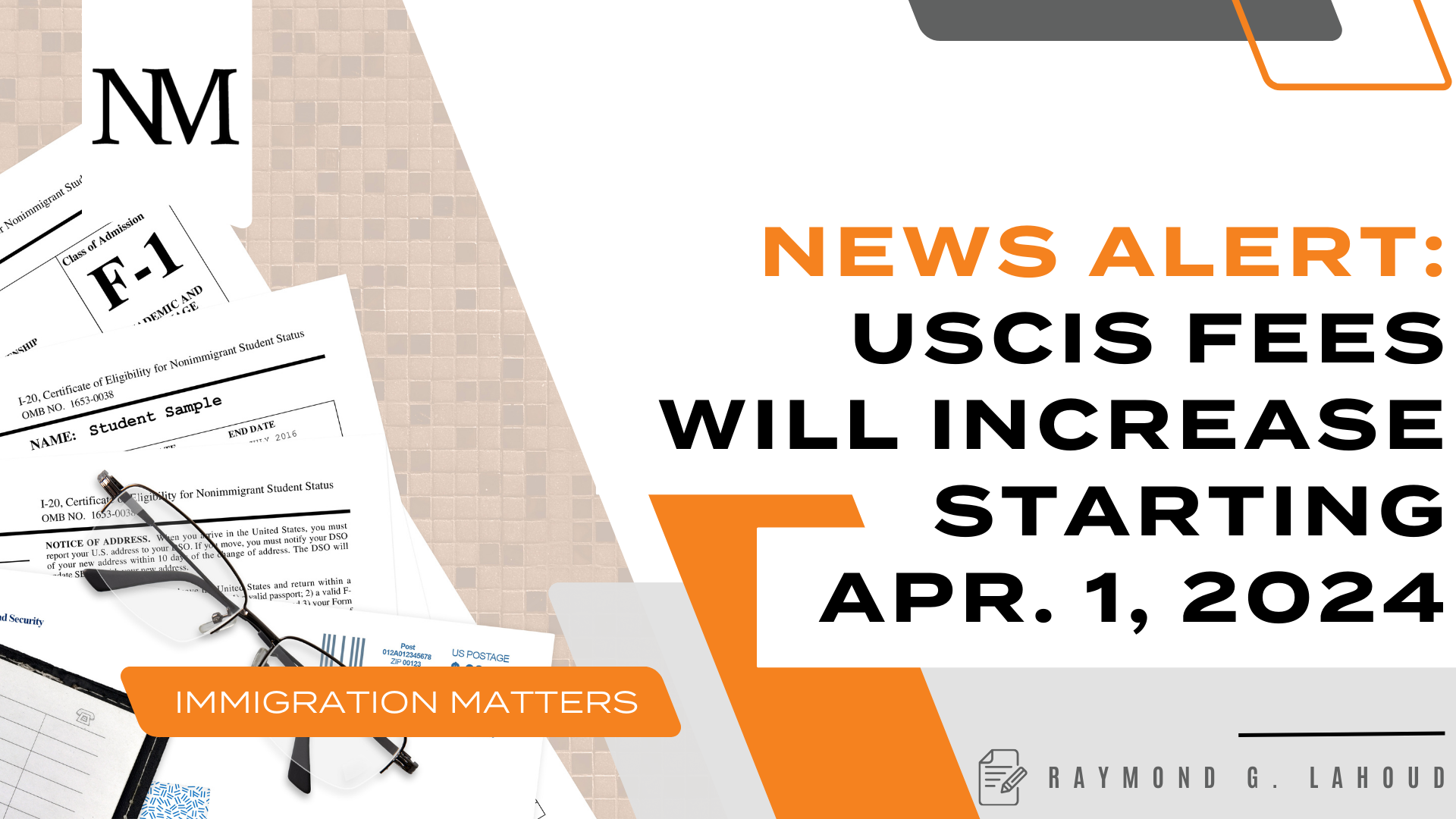To learn more about this post or any other immigration matter, please feel free to contact me at rglahoud@norris-law.com.
United States Department of Homeland Security Extends Temporary Protected Status for El Salvador, Haiti, Honduras, Nepal, Nicaragua, and Sudan

The Department of Homeland Security (“DHS”) announced the extension of Temporary Protected Status (TPS) for El Salvador, Haiti, Honduras, Nepal, Nicaragua, and Sudan through January 4, 2021.
What is TPS?
TPS is a form of temporary status allowing individuals from certain countries to lawfully remain in the United States, when conditions in the designated country prevent citizens and nationals from safely returning or when the country is unable to facilitate and handle their return securely. Country conditions that lead to TPS designation include an ongoing armed conflict or an environmental disaster. TPS designation is at the discretion of the Secretary of the DHS in consultation with the State Department. Individuals with TPS are granted temporary protection from deportation from the United States.
While on TPS, employment is authorized, driver’s licenses are issued, temporary travel outside of the United States may be requested, and the Social Security Administration provides Social Security Numbers to allow those with TPS to pay federal, state, and local income taxes, as well as into the federal Social Security Trust Fund. New Jersey is home to nearly 15,000 individuals with TPS who contribute over $872.6 million to the state’s GDP. Pennsylvania’s nearly 5,000 TPS holders contribute over $100 million each year to the state’s GDP.
Why did the DHS extend TPS?
The DHS previously announced the termination of TPS status for all six countries. Following legal challenges to the DHS’s termination announcements, several federal courts entered preliminary injunctions preventing the DHS from ending TPS until the underlying litigation challenging the DHS’ TPS termination concludes. The DHS is challenging the preliminary injunctions, which, if successful, would permit the DHS to deport those now holding TPS pending the outcome of the litigation related to the TPS termination.
In the Federal Registrar Notice, the DHS made clear that the extension is not because of any determination that the conditions in El Salvador, Haiti, Honduras, Nepal, Nicaragua, or Sudan prevented the return of TPS holders; rather, the DHS noted that the extension is only
in compliance with the preliminary injunctions of the U.S. District Court for the Northern District of California in Ramos, et al. v. Nielsen, et. al. and the U.S. District Court for the Eastern District of New York in Saget, et. al., v. Trump, et. al., and with the order of the U.S. District Court for the Northern District of California to stay proceedings in Bhattarai v. Nielsen.
84 FR 59403. If the DHS prevails in either the challenge to the preliminary injunctions or the underlying litigation prior to January 4, 2021, TPS will automatically terminate 120-days from any final court decision.
Is there any action needed?
According to the Notice, those with current, valid TPS from El Salvador, Haiti, Honduras, Nepal, Nicaragua, or Sudan do not need to apply for an extension of TPS or renew their employment authorization document (EAD). Rather, a copy of the Notice, together with already issued TPS-related documents such as EADs, Forms I-797, Notice of Action, and Forms I-94, Arrival/Departure Record, are sufficient to automatically extend both TPS and employment authorization for those with TPS until January 4, 2021.
Employers are on notice of the automatic extension and must accept the Notice and an already issued TPS-related document for purposes of Form I-9, Employment Eligibility Verification and re-verifications of expiring EADs.
Employers and immigrants with TPS are encouraged to download a copy of the Notice here.




